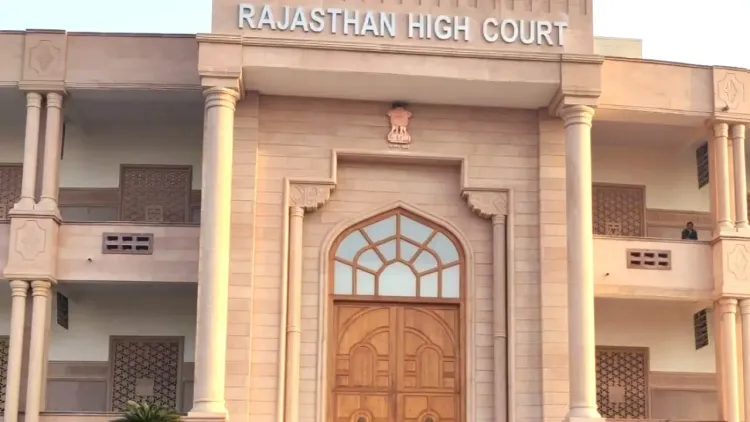Rajasthan High Court Calls for Live-In Relationship Laws

Synopsis
Key Takeaways
- Legal clarity is essential for live-in relationships.
- The court suggested establishing an authority in each district.
- A dedicated website for grievance redressal is proposed.
- The court is seeking a compliance report by March 1.
- A larger bench will rule on legal protection for married individuals in live-in relationships.
Jaipur, Jan 29 (NationPress) The Rajasthan High Court has urged both the Central and state governments to develop regulations concerning live-in relationships, highlighting the necessity for legal clarity on this issue.
Justice Anoop Dhand, in his judgment, pointed out that although live-in relationships lack social acceptance in India, they are not illegal according to current laws.
The lack of a precise legal structure has resulted in confusion, with various courts interpreting the law differently in different cases.
Recognizing the shifting social dynamics, the court has encouraged the Parliament and State Legislature to contemplate the establishment of a law to regulate such relationships.
Until such legislation is enacted, the court has called for the creation of an authority in each district to manage cases pertaining to live-in relationships.
Furthermore, it proposed the development of a specialized website or portal to address complaints and offer legal support.
A significant legal question raised was whether individuals who are married but living in a live-in relationship should be afforded legal protection.
Due to differing decisions from various single benches of the High Court, the matter has been referred to a larger bench for a conclusive ruling.
After hearing several petitions, including those from Reena and others, the court had reserved its ruling on January 6, which was delivered on Wednesday.
Stressing the urgent requirement for legislation, the court asserted that a comprehensive live-in relationship law should outline the rights and responsibilities of couples, address issues concerning women and children in these relationships, and establish legal responsibilities for partners related to childcare, education, and healthcare.
The Chief Secretary, Principal Secretary (Law), and Central Law Secretary have been instructed to receive copies of the court's order.
The court has also requested a compliance report by March 1.
The court observed the rising number of cases where individuals in live-in relationships are already married, some without formally ending their previous marriages.
Couples seeking legal protection from threats posed by family members have encountered inconsistent rulings from different benches.
To resolve this, the larger bench will now determine whether a married individual can engage in a live-in relationship without obtaining a divorce and seek legal protection.
If two married individuals from separate marriages cohabit in a live-in relationship and request legal protection, the High Court noted.







